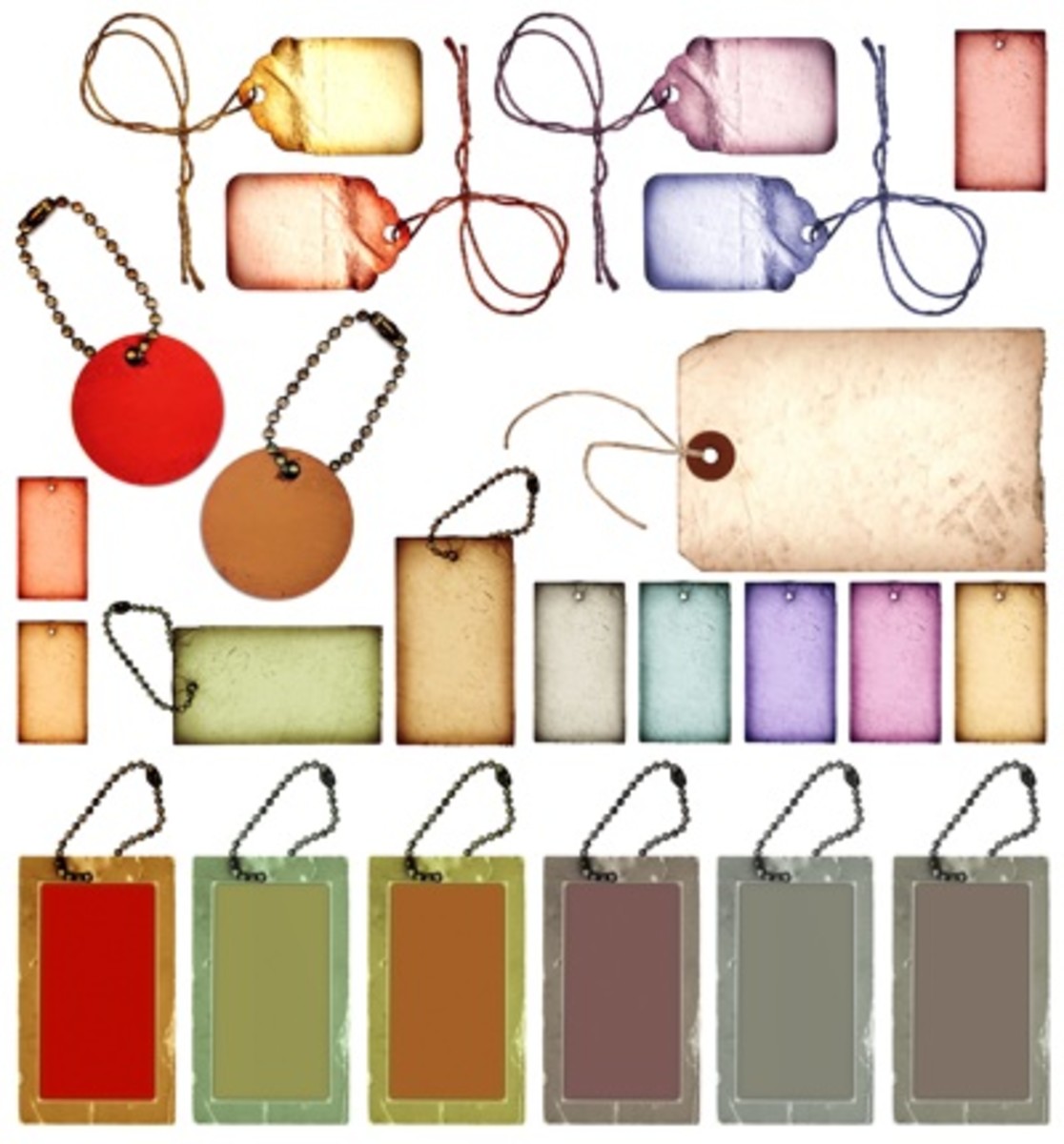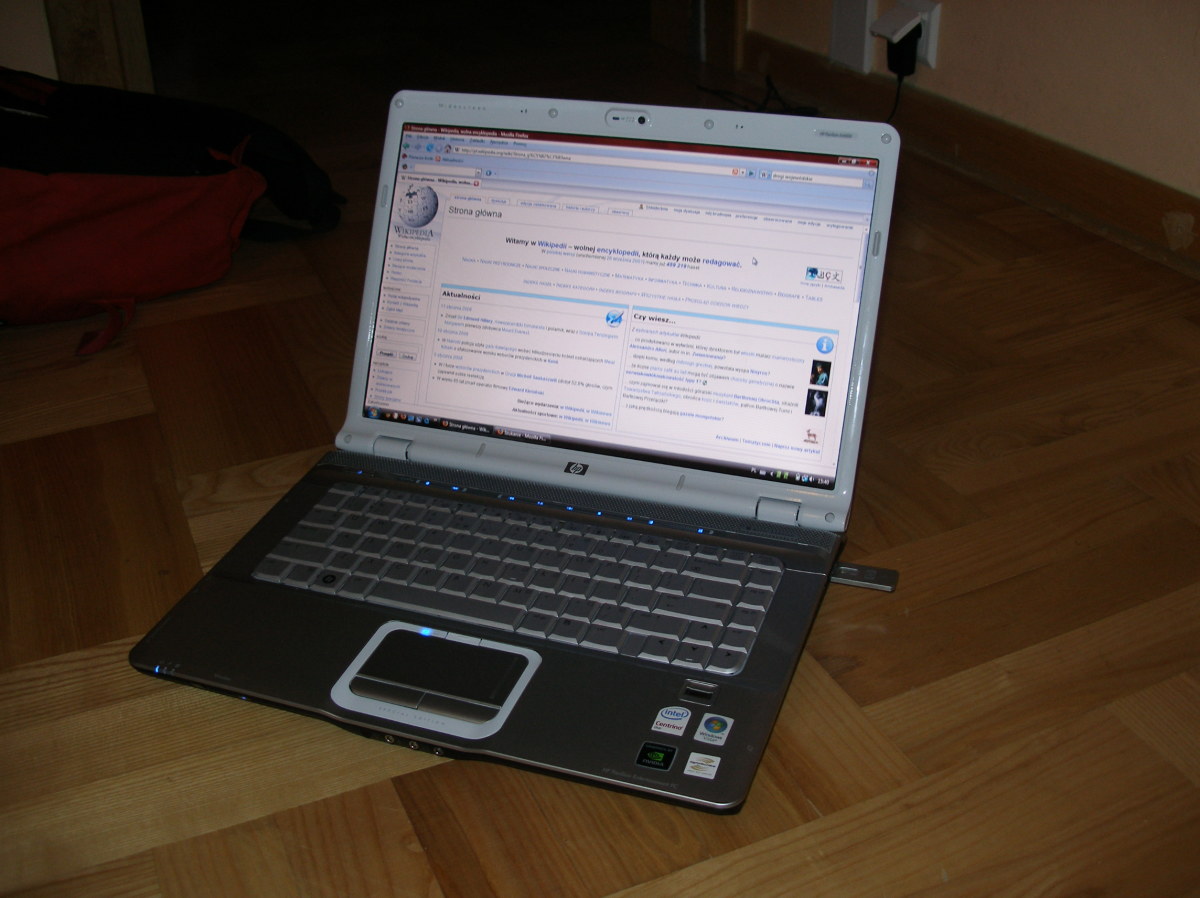Using Google AdWords Keyword Tool To Find Most Searched Keywords For The Best Titles And Tags Of Your Hub
Most of us, hubbers, know how important search engine optimization of our hubs is. And though it's very hard to make it to the first page of Google via off-site SEO, we should do our best for on-site SEO to be as attractive to Google as possible.
One of the most important things which make or break the success of a page in search engines are keywords. And also titles, summaries and tags. Here, on Hubpages, they are not just for the convenience of the users, they are here to let you make your hub as much attractive as possible to Google, Yahoo and Bing.
After a question from one of the writers on how to best choose tags for the hubs, I decided to share my experience and explain not only how I choose the tags, but how I choose titles, how I write summary and what keywords I use.
Just one thing, this technique will definitely make your hubs more attractive to the search engine, but it doesn't necessarily mean that they will be on the first page. Being on the first page requires much more than carefully selected keywords - it requires more analysis, more off-site SEO and some luck.
I will show you how I select best titles, write summary, select tags and keywords for my hubs using my most recent hub Best Courgette Recipes as an example.
To start everything up, you need Google AdWords account. It's free. So if you still don't have it, go to http://adwords.google.com and sign up. Once you are all set, go to Tools and Analysis - Keyword Tool.
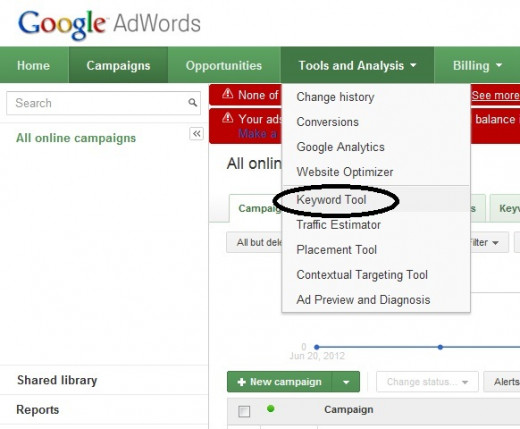
How To Choose A Title
Let's assume, I've already chosen the topic I'll write about (choosing a good topic for search engines is another thing which would require another hub), and I decided to write recipes of dishes made using courgette or zucchini.
- I write "courgette" and "zucchini" as a word or phrase;
- choose "Only show ideas closely related to my search terms", so that the search results are only those that use the word "courgette" or "zucchini" in it;
- check "exact match type";
- I also choose list to display according to Global Monthly Searches.
Don't forget to go to "Keyword Ideas" tab, as AdWords uses "Ad group ideas" tab by default.
A little bit about match types. I usually choose exact, so that I know for sure that people are searching for these exact phrases so they are really popular. Broad match type shows total number of searches which use the phrase or part of it in them, so that could be a little bit misleading on what good phrase is. Besides, it's really easier to compete and get to the first page with the exact phrase someone is searching for if it's used in your title, summary and tag.
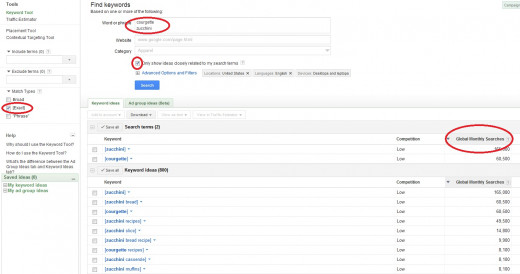
Here I see all the possible keywords, so I choose most relevant ones. I chose "courgette recipes" as a main keyword for my hub, since it has rather high search volume (8,100), but not too high (those which have too high search volume are usually too competitive).
So if "courgette recipes" is my main keyword, I use it in the title, in the url, in the hub itself (several times), in the summary and in the tags. Sometimes I choose 2 keywords and use them both. As for the tags, I use all related keywords from Google AdWords keyword tool. In case of my Best Courgette Recipes hub. I did another search on most relevant terms. In that hub I wrote about lasagna, pancakes and soup, so I did search on: "zucchini lasagna", "courgette lasagna", zucchini pancakes", "courgette pancakes", "zucchini soup", "courgette soup" and took all the keywords that had decent search volume for my tags.
But remember: Don't stuff your article with keywords - too many keywords will do no good. Moderation is a key. Use keywords just several times. For me, it's usually no more than 5.
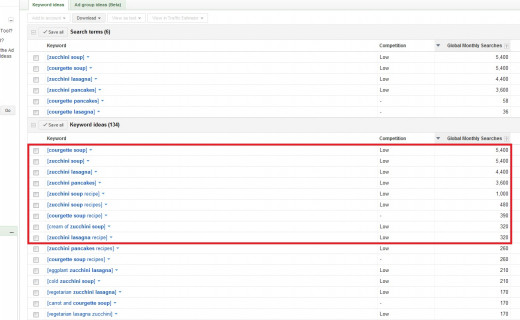
So What Are Ideal Keywords, And How To Get To The First Page?
Ideal keywords are those that have high search volume, low competition and low PR (PageRank) of competitive websites. PR is a number Google gives to each page to show how much it "appreciates" it. The higher PR, the more powerful is a webpage. That's why for newcomers it's much easier to rank high if you write in Hubpages, than if you create your own blog or website and write there. New website will take much time before it will be recognized by Google as a credible source and be given high rankings. Hubpages is already a credible source and if your article is written here, it's much easier to bring it to the top of Google, especially if you apply my advice and make it as much search engine friendly as possible.





